Posts by Alyson Shane
I have the weirdest luck
- by Alyson Shane
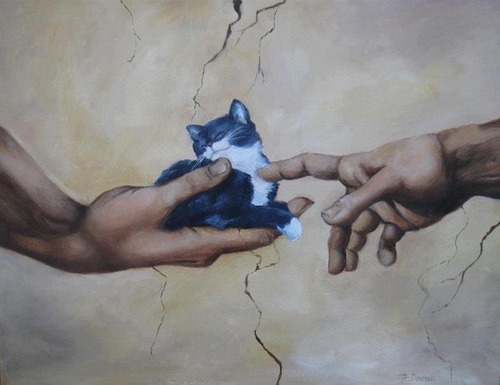
Yesterday as I was on my way to a meeting my toque blew off my head because it was windy af and I had to chase it down the street like a chump
which wouldn't have been so bad, except as it was blowing away my toque blew into some dude's legs as he was also crossing the street, and you know what he did?
He laughed and kicked my toque off his leg and I swear I could have chewed him out for being a tool right then and there but I was worrying about catching up with my toque and also getting my hair, scarf, and glasses which slipped off my face as I was hustling in place
(I must have looked like a hot mess)
then as I was bending down to snatch up my hat my phone went flying out of my pocket and wouldn't you know it
the damn thing hit the pavement and the screen shattered into a bazillion horrible and depressing shards.
It was heartbreaking.
But I had to go to a meeting with a new client and my account manager so I had to keep my shit together even though I was freaking out internally because now I needed to get a new phone. There was no way I could use this broken POS. Ugh.
So after my meeting wrapped I headed to my friendly neighbourhood Rogers kiosk to get it replaced. As I was going through the transaction I mentioned that I was heading to Thailand in a few months and the dude said
oh no way, I just got back from Thailand and Indonesia!
and gave me a ton of tips and tricks to traveling through Thailand including making sure we do some scuba diving off the islands on the southern part of the country
(which we were planning to do)
and also to take as many night trains as possible since they're affordable and beautiful and offer lots of chances to actually interact with real Thai folks and not just dumb tourists like us.
(we're now booked on a night train to Chiang Mai which I am PUMPED about)
"Sorry about this" he said "but it's gonna be $300 to buy out of your contract and get a new phone" and I said well, that sucks but OK. I'm not a baller but my corporation can afford it so I'll just buy it now and get money back on my taxes since it's a business expense.
And he said, oh you run a business, what do you do?
And I said I run a digital marketing agency blah blah and he said are you looking for copywriters?
And I said, why yes I am
and he told me his gf was a CreComm grad and is a copywriter and is looking for more work and I thought THIS IS PERFECT because I have lots of work I need done and I'd rather pay someone to do it than do it myself because yr girl is busy af
so I left him my card and have a potential new hire without doing any work.
What's weird about that whole exchange is that if I hadn't been chatty and pleasant and probably bordered on over-sharing what my company does, what our Thailand plans are, etc.
(luckily for me I live in a city where everyone is unusually nice and talkative with strangers)
I might not have gotten those travel protips or had the potential to meet a new person who can help me grow my company and do good work for my clients.
The moral of the story I think is: be chatty and pleasant and good things will come to you.
It always seems to work out that way for me, anyway.
Saw the funniest, saddest play the other day
- by Alyson Shane
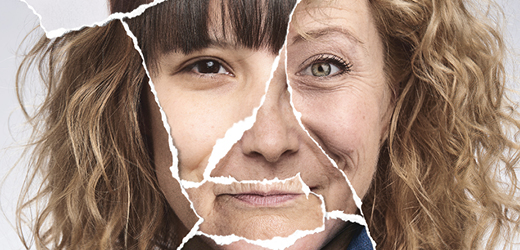
"Happy Place" is playing at the Prairie Theatre Exchange right now and John and I checked it out on opening night last week. I try not to do any research into the shows before we see them so I don't go in with any expectations, and to date it hasn't done me wrong.
"Happy Place" is a play about a group of women who, for one reason of another, all find themselves in an in-patient centre as a result of various types of trauma.
Based on that description you'd probably expect to cry more than you'd laugh, but I don't know if that's quite the case with this play.
The play begins by introducing Samira, a young woman who starts out being withdrawn and quiet around the other patients, and around their doctor, Louise. Over the course of the play we learn that Samira has been sexually abused, at one point through a gut-wrenching monologue that was, honestly, hard to hear.
Other characters include Mildred, the shit-disturber who provides a lot of the comedic relief through her sassy, no-bullshit personality; Rosemary, who is reserved and somewhat condescending; Kathleen, who has also been sexually abused; Nina, who is tightly-wound and whose psyche feels frayed; and Joyce, who spends most of her time being a nosy busybody who one-ups everyone so thoughtlessly that it almost seems like she does so without thinking.
The set was simple: a raised platform with areas off to the side representing the "rooms" the women stayed in. At first it almost felt too simple, but as the play progressed the use of lighting created a surprisingly dynamic and engaging stage setup.
I feel like "Happy Place" is important for several reasons.
The play explores the various ways women can be abused, manipulated, overpowered, and the deep underlying sense of shame and low self-worth that these experiences breed inside of us.
The short scenes and choppy, fragmented way in which the story was told reminded me a lot of what it was like in therapy: short outbursts of extreme emotion that often left you feeling more empty than whole and fulfilled.
There were several group scenes which stood out, including one where Louise asks the women to create a collage of their "happy place" which - I won't go into too much detail here - but this also hit home in a surprisingly profound way as the characters discussed their reactions to the concept of a "happy place".
I cried so hard while watching "Happy Place" that I started to worry about my mascara and eyeliner giving me raccoon eyes.
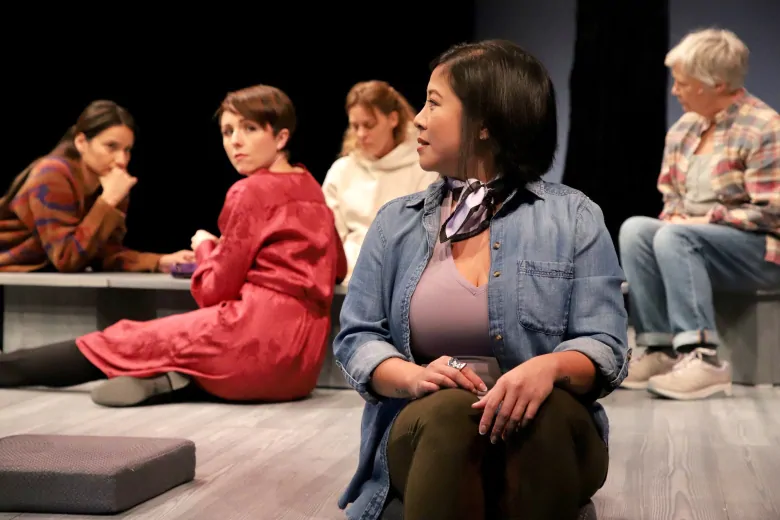
As each of the characters began to process her own trauma, and the role she played in creating or enabling the issue I, and other people in the audience, started to break down.
At one point Joyce, whose constant need to one-up everyone around her had reminded me so much of my mom and my Nan (my mom's mother, ironically also named Joyce) floored me by saying
"I'm not depressed because my husband left me... my husband left me because I'm depressed."
It's not often that a character in a play puts words to your deepest, darkest fear.
I don't think I was quite ready for it. I started crying and had to work to restrain myself from flat-out ugly-crying in the middle of the theatre. I held onto John's hand so tight and saw that he was crying, too.
Most everyone in the theatre was full-on crying by that point, I think.
Which speaks volumes about the play, and its playwright Pamela Mala Sinha. Being able to peel back layers of fear and self-judgment for the things we are ashamed of, or wish we could undo, or forget onstage is a magnificent (if not somewhat off-putting for how personal it felt) feat, and a deeply powerful and moving experience to watch acted out onstage.
"Happy Place" is playing at the PTE until November 25, 2018, and even though I've spent most of this post talking about how sad it was, and how much I cried... that's precisely why you should grab a ticket (or two, it's good to cry with a friend) while it's still playing.
It's not every day that a play touches you as deeply as this one touched me, and based on the sniffling and tissues going around the venue, I doubt I was the only one who felt that way.
**Big thanks to the folks at the Prairie Theatre Exchange for giving me free tickets to see their 2018/2019 season in exchange for these posts. It's a wonderful treat to be able to support and promote Winnipeg's independent theatres.**
Having lunch downtown today
- by Alyson Shane
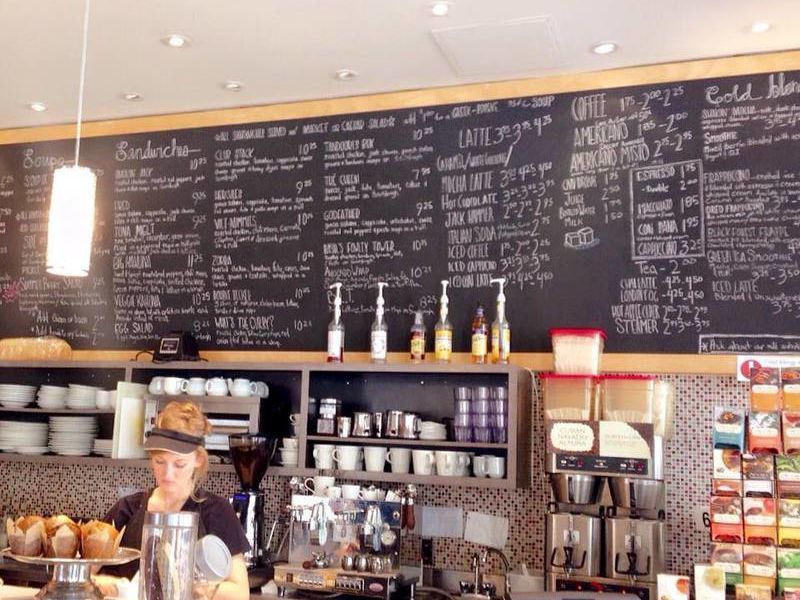
I'm sitting at the Fyxx on Broadway and eating lunch: Tandoori's Box sandwich (pretty good) and some chicken gumbo soup (very good) and a glass of water because I have a thermos of coffee in my bag that John made for me this morning before I left the house.
He makes coffee in a Chemex during the weekdays and has a system of pouring the water, waiting, and pouring that it part Chemex-specific, and part his own process.
On the weekends he makes coffee using the Aeropress but the coffee also includes tasty stuff like a shot of Jameson's or Baileys or Kahlua if we're craving something sweet.
John's coffee is one of the highlights of my day-to-day and I will be the first to admit that I am completely spoiled in this regard.
I only make my own coffees when he's travelling for work or out of town and I can tell you that even though it's hard to fuck up coffee, whatever I make isn't nearly as good.
Back when I worked in an office he would make me a big thermos to take with me so I didn't have to drink the Maxwell House that every office seems to defer to.
(We do not drink Maxwell House. We drink fair trade coffee from our local coffee shops like Thom Bargen and sometimes Parlour Coffee or Little Sister).
(Though we often cut our fancy beans with flavoured beans from Bulk Barn which means my coffee is half French Vanilla or Hazelnut or whatever, which is isn't as fancy but is way more delicious).
When I started running Starling a few years back I switched from going into an office every day to working from home and I'd assumed for some reason that my thermos of coffee would go away
after all, if I'm at home with all the coffee stuff why would John bother making extra for me?
But every day for the past three-plus years John has not only made me a thermos of coffee every weekday
but he brews it, mixes it, and drops it off at my desk in the morning before he leaves for the office
so by the time I'm finished getting ready I have a cozy office with a big 'ol thermos of coffee waiting for me on my desk.
A while back we had a big fight in the morning before work.
I forget what it was about, but it was one of those stupid fights where you're probably too emotionally volatile (and fully not awake yet) so everything is a problem and the other person makes you so mad you could spit.
I said to John "just go away. I'll see you later" and I started getting ready like I usually do
and that wonderful man, you know what he did?
He went upstairs and made me my usual thermos of coffee
and then he dropped it off in my office as usual
even though we were in the middle of a fight and I was, in hindsight, probably not being my best self
(I'm not a morning person)
he still went out of his way to be kind to me.
Later in the day after we'd calmed down and had a chat and things were back to normal I said
"why did you still make me coffee this morning?"
and he said
"just because we're fighting doesn't mean I get to be a dick about things. I love you."
Thank god I'm marrying that man.
The election is over so I can use the internet again
- by Alyson Shane
Just kidding, I never stopped using the internet.
But in the weeks leading up to the election I found myself dreading looking at social media, and at the deluge of inflammatory comments, straw man arguments, and overall negativity aimed at the Coalition for Portage and Main (aka 'VoteOpen') of which I was a spokesperson during the recent election.
I'm going to talk about that experience as frankly as I can because that's what I've always tried to do. Maybe this will hurt your feelings. Maybe this will piss you off. Maybe you'll agree with me. Maybe some of this will ring true to you.
Who knows.
Here goes.
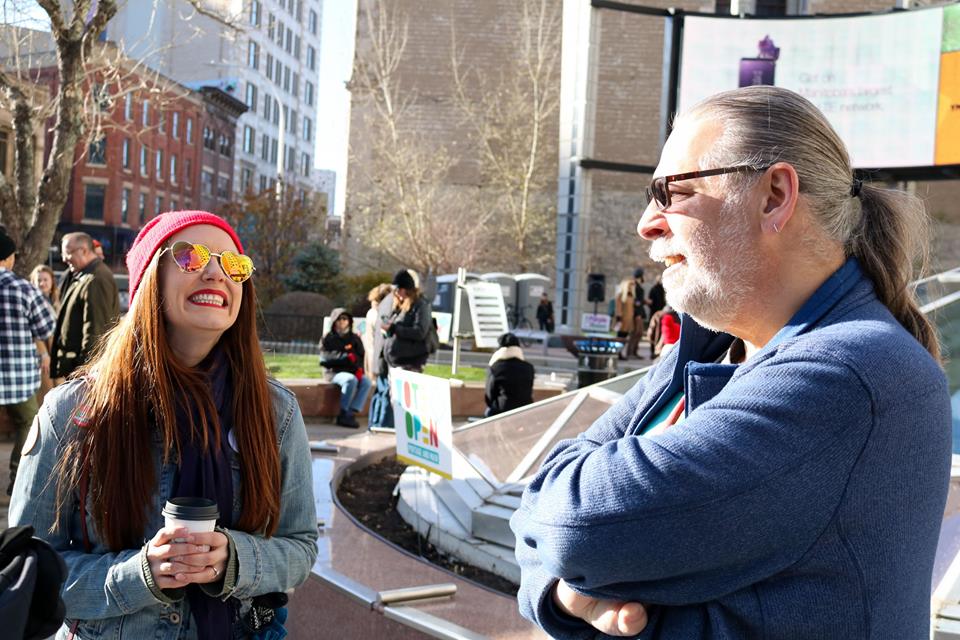
The Good
As a member of VoteOpen I got to know some of the most passionate and dedicated people I've ever met.
As a business owner I have the privilege of regularly meeting interesting and motivated people as part of what I do, but it's not often that I've had the good fortune to be in a room with so many people who fit that bill on an ongoing basis.
The VoteOpen committee meetings each Friday afternoon became one of the highlights of my week (especially the post-meeting cocktails). I got to know smart and thoughtful people like Adam Dooley, Ian McCausland, Anders Swanson, Wil Belford, Glen fucking Murray, Adam Duguay, Brent Bellamy, and a whole lot more who brought creativity and great ideas to every meeting.
I met dozens of volunteers who weren't on the committee, but who donated time on evenings, weekends, and during their workdays to advocate for a cause they believed in.
I spoke to passionate Winnipeggers on a daily basis who believe that the best downtowns are accessible, pedestrian-focused, and who share the same vision of my city as I do.
I got to be on podcasts, on the radio, and on the news multiple times as a spokesperson, which sharpened my chops and helped me become a more confident public speaker.
I tabled at my alma mater and got to engage with university students about the civic process, and talk to them about the kind of city they want to live in.
I gave a talk at Design Winnipeg's 10x20x20 where people cheered for our message.
That one felt good.
A local "journalist" (heavy quotations) blocked me on Twitter after I repeatedly asked him why he was going after a group of volunteers instead of holding City Hall accountable for keeping the public uninformed about the impact of the plebiscite vote.
Instead of explaining his reasons, he blocked me.
Does that one get me a badge? I feel like it should.
Then, near the end of it all, I got to attend OpenFest, a free public concert where my favourite local band played my favourite song in support of a cause I believe in, and which I campaigned for.
That was a really good night.
The Bad
At the end of the day, the city voted 2-to-1 to keep the intersection closed. Obviously I'm disappointed with the outcome; how could I not be, really?
But the thing that disappointed me the most was how little our elected officials did to keep the public informed about an issue that will continue to shape the future of our downtown.
Instead of leading the discussion, our Mayor (who initially campaigned on reopening the intersection, by the way) and City Council left it to a group of volunteers to try and do their work for them.
This would have been a great moment for the incumbent (and now second-term) mayor to lead the discussion and showcase the vision of the 'City of a Million' he led with during his initial bid for mayor back in 2014.
It would also have been a great opportunity for City Council members to - at the very least - make the information regarding the Portage & Main more readily available and understandable so the people living in their wards could make informed decisions about the future of the city they live in.
Unfortunately that would require some vision and consideration for their electorate, neither of which I've seen around City Hall recently.
Dan Lett wrote a wonderful piece in the Winnipeg Free Press articulating what a farce this entire plebiscite vote was, so I won't repeat it here, but suffice it to say we were fighting an uphill battle from the start, and one that was deliberately stacked against people who support and believe in our downtown.
Honestly though, the worst part was watching my city turn its back on progress.
As a recent New York Times article pointed out, all over Canada and elsewhere cities are revamping their downtowns to focus on pedestrian foot traffic, transit and cycling infrastructure, and business development to reinvigorate decaying downtowns and wean ourselves off of our dependance on single-person vehicles and fossil fuel.
Except here in Winnipeg.
In Winnipeg, the car is still king, even though it shouldn't be.
**Edit**
(Don't give me any blowback about the "cold winters," please. I've lived in this city for most of my life and I've never owned a car. I walk or bike when it's warm enough [which is actually most of the year] and in the winter I take transit, or a Tapp Car, and I get by just fine. So do many other people I know. So that excuse is moot as far as I'm concerned.)
The Ugly
One of the most frustrating parts of this experience has been the repeated accusations and insults hurled at a group of people who are volunteering their time to try and effect positive change for our city.
I repeat: we were volunteers with no political experience doing the best we could with limited time, resources, and information.
We did our best to convey information from sources like 90-page reports, documentation about local transit, etc. in a succinct and effective manner, but that shit is hard, and doubly so when the majority of "no" voters we engaged with continued to accuse us of deliberately trying to mislead the public, or of "not providing them with enough information."
Because here's the thing: we had all the same information as everyone else in this city. We just took the time to read through it all (or most of it) while the majority of voters decided not to.
(And if you didn't, that's fine. But people in glass houses shouldn't throw stones.)
Specifically, however, I want to touch on a troubling component of this campaign, which is that the VoteOpen folks were held to a significantly higher moral standard than the "no" side and our local politicians.
A local politician called us "elitists" (which is laughable - I rent my home and don't own a car. I'm hardly "elite" by anyone's standards), our local smear "journalist" called us "arrogant," and I've had more people accuse us of being condescending or of "talking down to people" than I've ever heard in my life.
(And I grew up in an abusive household, so I know what it feels like to be talked down to, or to be made to feel small or stupid on purpose.)
I helped manage the VoteOpen social accounts, so I can say with certainty that we always strove to be respectful in our messaging, and to rely on facts and data whenever possible while also trying to paint a picture of what our downtown could be.
However, the one talking point that seemed to really incense people is this:
The general public are not informed enough to vote directly on matters of public policy.
This one confused me, because here's the thing: it's OK to be uninformed.
Being "uninformed" doesn't mean someone is stupid - which is what a lot of people seem to think it means for some reason - it means we haven't learned as much about a subject as we could, and that's totally okay.
But the impact public policy projects - from The Forks, to The MTS Centre, to The Floodway (aka "Duff's Ditch"), just to name a few local ones - is hard to convey because it's hard to get people to think "big picture" at a civic and multigenerational level if they've never had to before. And that's okay. We all start somewhere (and I can say this from experience).
That's why VoteOpen consistently linked to relevant data, facts, and opinion pieces from urban planners who spend their lives studying the effects of areas like Portage & Main whenever we could.
We did this not to make other people feel small, but because we were trying to avoid getting into rhetorical arguments, or from using logical fallacies whenever possible.
We stuck to the facts whenever we could because the facts are how we make informed decisions, both in our personal and public lives.
The "no" side, however chose to hurl insults at us, leave negative or rude comments, or tell us that they hope people die if the intersection is reopened.
Here's a small sampling:
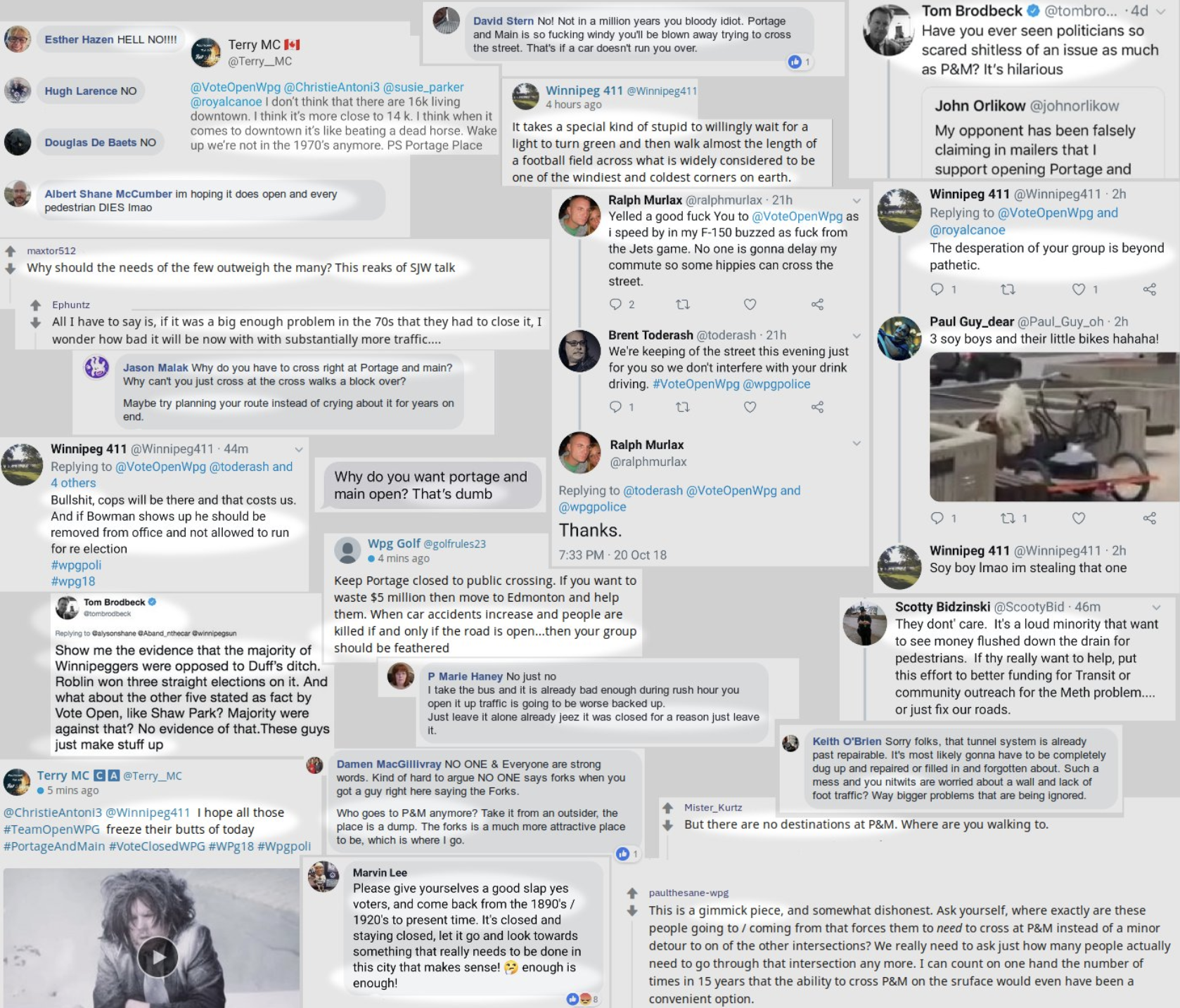
These two stand out:
"When car accidents increase and people are killed if and only if the road is open... then your group should be feathered."
and
"Im hoping it does open and every pedestrian DIES lmao"
I heard this sentiment a lot: people commenting and saying they hope people die so VoteOpen will "learn a lesson" or that they can't wait to see the bodies at Portage & Main.
What the actual fuck, people. These kinds of attitudes and comments are extremely alarming. Would you want to live in a city where people think this way about you?
But my point is that we were repeatedly dragged over the coals for engaging in what was always intended to be respectful and civil public discourse, while the "no" side had a field day and wasn't held to the same moral standard.
We weren't perfect, of course - this was an emotional election and both sides got worked up - but I can say with certainty that everyone officially associated with VoteOpen always did their best to be respectful to everyone we engaged with.
I know from experience that that wasn't the case on the other side of the aisle, and seeing such an ugly and repulsive side of my city really started to wear me out as the campaign dragged on.
Moving Forward
Despite the result of the plebiscite (which is non-binding, by the way) I doubt that the discussion about Portage & Main is over.
We already know that millions still need to be spent to repair the underground concourse, which is infested with mold and decaying (as concrete tends to do after 40 years) so the barricades will come down anyway... and frankly it seems stupid and small-minded to simply put them back up again after we spent millions taking them down.
I guess we'll see.
At the outset of this whole debacle I said that the Portage & Main debate is an embarrassment to Winnipeg, and even after being called "arrogant" I still stand by that statement.
It was embarrassing to have to work so hard just to try and get people to say "yes" to opening an intersection.
It was embarrassing to hear people in my city dismiss people with accessibility issues who stated that the intersection didn't let them cross the street with dignity.
It was embarrassing to hear people make fun of and dismiss women who expressed concern for their safety while navigating the underground concourse alone or at night.
I felt embarrassed of my city when I spoke to individuals from elsewhere who didn't understand why people were fighting to keep people from crossing the street.
The most embarrassing part was seeing firsthand that many people who live in this city don't care about the health and well-being of the place we call 'home' if it affects their commute in any way whatsoever.
Actually, that was equal parts depressing and embarrassing.
Our downtown deserves better than to be a thoroughfare between one suburb and the next.
Still Feeling Hopeful
Despite all of the negativity, what this experience taught me was that the tides are changing in my city. Things are changing slowly, and from the centre out (as is typically the case with cities, it seems), but things are changing.
This is especially true among the younger demographic, who are spending more and more time downtown, and in the surrounding areas like The Exchange District and The Forks.
When tabling at the University of Winnipeg the majority of the students I talked to were open to the idea of a walkable and vibrant downtown, and saw Portage & Main as a key point to making that happen because they wanted a city that they could be proud of.
That was inspiring.
Because here's the thing: you can't stop progress.
Sure, you can slow it down. You can try and get in the way. But progress always wins out because eventually people will want to start replicating the success stories we see and read about in other North American cities.
Hopefully we can get some real leadership and vision in City Hall sooner than later, and the next round of politicians in the civic election will do a more effective job of communicating a vision of the kind of vibrant, safe, and accessible downtown that we and future generations deserve to be able to enjoy and experience.
Winnipeg will get there, eventually.
And I, for one, am happy to keep leading the charge for progress.
See you around, Winnipeg.
Saw Prairie Nurse at the Prairie Theatre Exchange last week
- by Alyson Shane
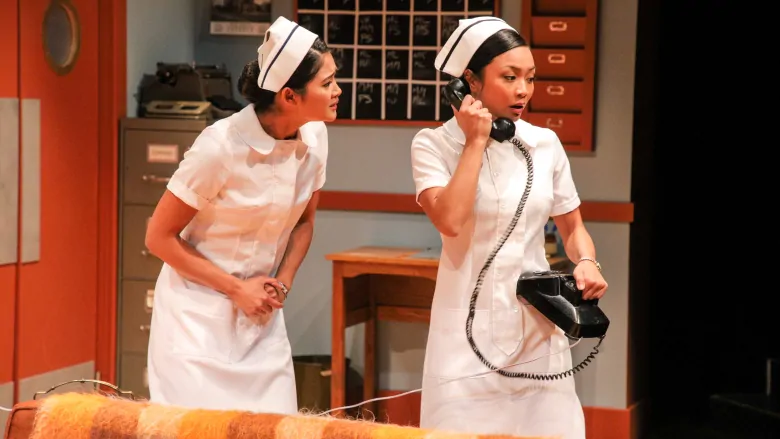
(Photo via Leif Norman)
It's a weird, funny screwball comedy and if you're looking to have an excuse to forget all the weird, messed-up stuff happening in the world right now and have a couple of good belly laughs, then this is the play for you.
I typically try not to do any preliminary research before going to a play at the PTE so I can go in without any expectations, and to date I continue to be pleasantly surprised by the quality of the plays, storytelling, and acting brought to life onstage each season.
The first thing that stood out to me when we sat down for Prairie Nurse was the set: usually plays at the Prairie Theatre Exchange (in my experience, anyway) tend to have more stripped-down sets, and rely on the audience's imagination to fill in the blanks.
Not that I'm complaining, mind you. I enjoyed the set a lot; in particular the lockers and the Formica table set gave everything a weird, home-y feeling. Even though the set was intended to represent the hospital staff room, it did a great job of conveying that this was the space were the characters "lived" when not working in the hospital. I loved it.
The play starts with several of the staff at a hospital in rural Saskatchewan anxiously awaiting the arrival of two new nurses who are moving to Canada from The Philippines.
The plot felt especially pertinent given than Winnipeg is home to one of the largest and most established Filipino populations in Canada, but even though the play tackles a lot of quirks and assumptions that can occur when different cultures clash for the first time, the play does a great job of speaking to anyone who has ever felt misunderstood, or out of place.
The plot of the play follows Puring (short for Purificacion) and Penny (for Indepencia), two women from the Philippines who come to a small-town Saskatchewan hospital to work as nurses during the 1960s.
The recurring problem that the hospital staff have, and what ultimately proves to be one of the major plot devices as well as one of the primary recurring jokes, can't tell the two nurses apart.
Of course, this inability by the hospital staff to tell the new nurses apart results in a variety of silly hijinks
(side note: so happy to finally have an excuse to use the word 'hijinks' in a written sentence on my blog)
which are only enhanced by the slapstick-style action of people entering through one door while someone exits another, jokes about how cold Canada is (of course), mispronunciations, and a variety of other jokes that I won't go into here for fear of spoilers.
One thing that stood out was how quietly the play addressed different, more subtle forms of racism. For example the hospital staff have a hard time telling the conservative and shy Puring, who comes from a rural community, apart from the outgoing Penny, who hails from Manila and has a decidedly more... shall we say, entitled personality.
One of the best characters was actually a supporting one: Dr. McGreggor, a Scottish doctor so obsessed with hunting and fishing that he'd pretty much rather be anywhere else than in the hospital delivering babies and tending to patients.
Overall Prairie Nurse was a charming and touching story not just of overcoming cultural differences, but also of the very human experience of trying to fit into a new place, and or trying to adapt to a changing one.
Prairie Nurse was a really lovely way to kickoff the 2018/2019 play season. I'm excited to see what the Prairie Theatre Exchange does next!
It's been a weird, hard time lately
- by Alyson Shane
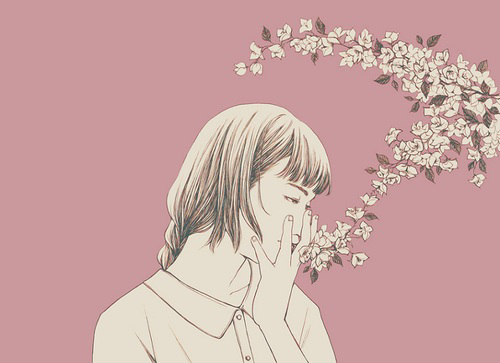
I don't know but whatever it is, it's been a weird few weeks and it's not just me. Everyone seems to be going through one thing or another.
There's a weird crackle in the air, bad juju, bad luck, weird happenstance, odd off-putting stuff going on it seems. A conflict. A misunderstanding. Health issues. Mental problems.
Everything feels fucked in one way or another and it's hard not to let it eat at you. Wear you down. Make you feel like what's the fucking point
of anything at all.
Between politics and the planet and interpersonal bullshit I swear every person I know is struggling somehow and I'm not sure if this is what adulthood is supposed to be like
or if this is just the new normal we all get to deal with
or if this is just how we get to feel if we take the time to be a #wokebae in today's messed-up, backwards-slipping world
but whatever it is, it sucks.
And I'm ready for a break.
But being a #wokebae (which is a joke, you guys) is realizing that - goddamn it - if nobody gives a meaningful shit then nothing will get better.
So you wake up and swallow yr feelings and slap a smile on yr face and pretend like, yeah everything's great I'm just overwhelmed because a major world power just elected a guy who committed sexual assault to the highest court in the land
and yeah the president of that same country made fun of victims of sexual assault and people thought that was OK
and the planet continues to be fucked and we're making it worse and what am I supposed to tell my future child about how we messed the planet up for them
and yeah people in this city can't vote "yes" on what should be an easy "yes" and essentially a non-issue
and people continue to be the versions of themselves that they are instead of the ones you wish they were
and all the other ways I and so many other people around me have felt like we're failing ourselves, or others, or both. And pretend like
yeah it's fine.
But it's not fucking fine, is it?
(Tell me it isn't.)
I've always liked being in charge
- by Alyson Shane
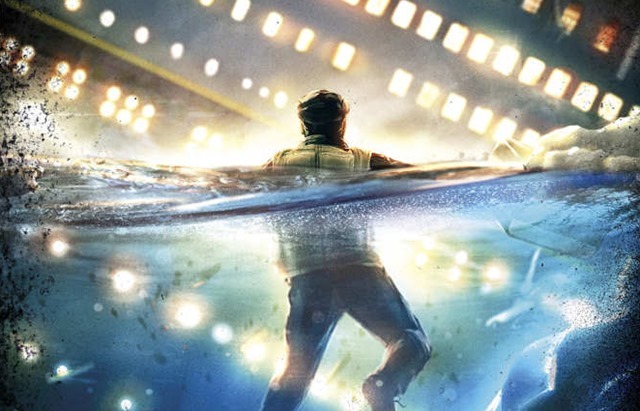
When I was a kid one of my summertime jobs was to wrangle all the kids that my mom babysat and walk them to the end of the street so we could all hang out at the playground for a few hours while the little kids had a nap.
I liked that job because I got to be in charge. Because this was pre-internet times I had a fancy watch on a leather strap that gave me the worst tan lines because I only ever took it off to go swimming.
I liked being the one in charge, even though it stressed me out sometimes when a kid would wander away from the playground toward the road or someone got hurt or some kids got into a dumb playground fight.
I liked knowing what was going on. When we needed to be there, when we needed to go back. How much candy and water were left from the backpack I'd bring along. Who needed to go to the bathroom.
Even though kids can be little shits and hate listening to anyone generally everything worked out just fine. A few bumps and scrapes, a few tears over unfair games of Tag and Grounders
(which is a game where everyone tries to stay off the ground while also avoiding whoever is 'It' who's walking around with their eyes closed. Super safe.)
but generally nothing a band-aid and a little talking-to couldn't resolve.
Adult problems are more difficult.
Adults have to hold down jobs and pay taxes and watch out for yr bad knee or yr bad back and drive to the store and save for the future and pay student debt and this, that, and the other thing.
Life comes at you full-tilt and let me tell you it doesn't stop anytime soon, friend.
Sometimes I feel like being an adult is like steering a ship through choppy, unsafe waters. You're navigating the best you can but who knows if there's a big swell coming or a rainstorm or if that damn iceberg is actually way bigger on the underside than you thought it was and now your whole ship is sinking into the ocean and now over 1,500 people have died.
Okay, maybe not quite that bad.
But my point is that most of the adults I talk to feel like we're just trying to steer our boats around whatever unforeseen calamity comes next. Whatever is hidden beneath the waves on a night that looks calm.
The same summer that I was in charge of the kids at the playground was also around the same time that the movie Titanic came out, and my brothers became obsessed with it. They just about memorized the 'Inside The Titanic' book at the library and would list off facts at the dinner table to the point where I would tell them to shut up about it, already.
Did you know that the Titanic was originally was designed to carry 64 lifeboats, but they were so worried about appearances and the deck looking cluttered that they only brought 20?
Did you know that the Titanic's lookout wasn't equipped with binoculars to see icebergs in time to avoid hitting the iceberg?
Did you know that the Titanic held no passenger lifeboat drills to prepare passengers for an emergency evacuation?
Did you know that the final SOS position the Titanic sent out was incorrect?
As a kid all these facts annoyed me because it seemed as though a bunch of stupid mistakes and oversight and hubris led to the sinking of an "unsinkable" ship and a huge and tragic loss of life.
"Why didn't they plan better?" I'd think "why didn't anyone speak up, or think critically, or assess all the potential ways this could have gone wrong so that it didn't happen?"
Which goes to show you how little kids understand about how the world works.
Changed a bunch of minds today
- by Alyson Shane
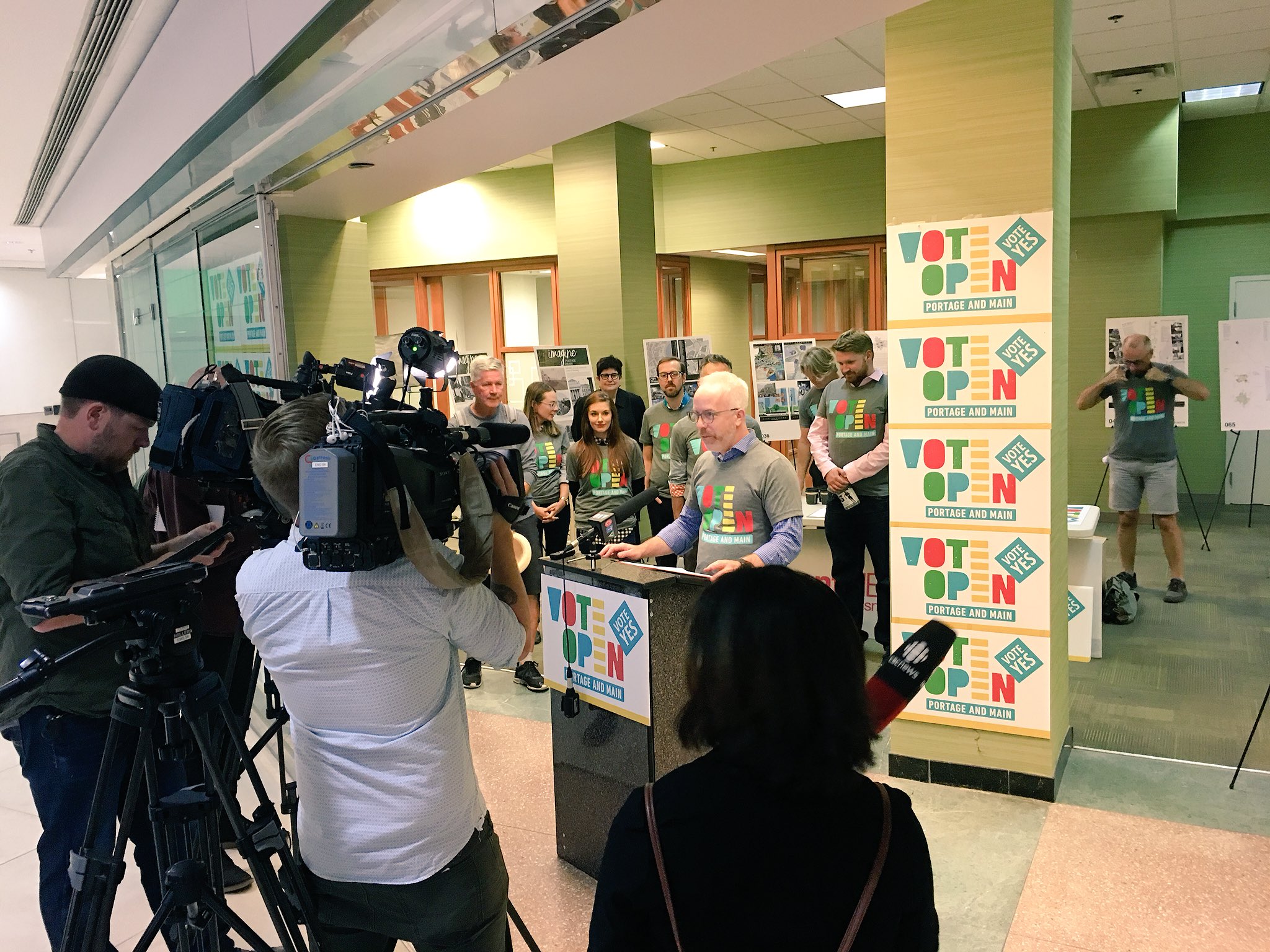
Never underestimate how much can be accomplished by having a positive, civil conversation with a stranger. I'm serious.
The VoteOpen storefront location opened up today at 201 Portage and so naturally yr girl was there to do interviews and hand out lawn signs and literature and tshirts, and also to talk to people walking by about what they thought about this polarizing issue.
I stood in the underground concourse for over an hour and changed the minds of nine of the "no" votes and talked to at least two dozen people who were already voting "yes" in the referendum in October.
Some people were rude and mean, but at least nobody told me to fuck off like the people at the First Friday event over the weekend.
Canvassing for a cause isn't for the thin-skinned, that's for sure.
I had a woman tell me that being assaulted in one of the stairwells when I was a teenager was "my fault" and that because she, personally, had never felt unsafe downtown then no woman should.
Which is an opinion she is entitled to.
Even if it's wrong.
But overwhelmingly the people I've spoken to have been open-minded and willing to engage in the discussion, which is rare and strange and to be honest not what I expected going into this campaign.
I under-estimated a lot of the people in my city, and that's okay.
Let's just hope the rest of the population proves to be as open-minded and progressive as the people I spoke to today.
Because those are the people who are going to move our city forward.
And, damn it, Winnipeg deserves to move forward.
We saw a movie on the weekend
- by Alyson Shane
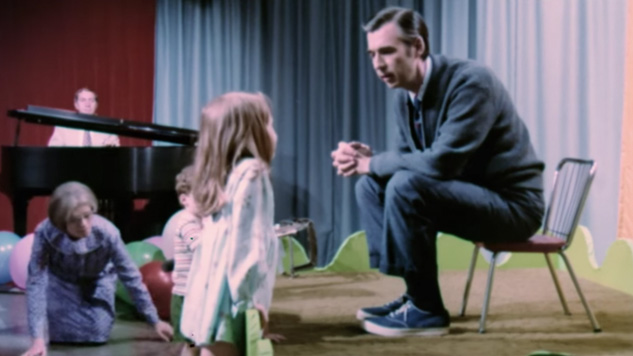
It was at the Cinématheque down in The Exchange District and it was the first movie I've seen there in a long time. We ordered popcorn and an Orange Jones Soda, which is my favourite, and a bag of Skittles which are also my favourite.
Luckily for me John's favourite is popcorn so going to the movies together is always an easy experience since we never disagree on what to get. We sat in the second row which didn't matter much since the cinema is so small that there's no bad seats, really.
The movie was Won't You Be My Neighbor? and it was a documentary about Fred Rogers, who most people over 30 will recognize as Mister Rogers of the iconic children's program Mister Rogers Neighbourhood.
He was the guy who talked to you about divorce when your parents were trying to keep you in the dark. He was the adult who explained what it meant to die when everyone around you was saying "Grandma went to sleep forever." He was the adult who said "I like you just the way you are" to a lot of kids who needed to hear it. Me included.
I wore my glasses because I knew I was going to cry at least once, and I did but only a little. I heard a lot of other people sniffling though, so there were at least a few other misty-eyed viewers in the room.
It was weird to get emotional to clips of an old man telling us he liked us just the way we were.
Think about that: a whole room full of people, sniffling and trying to hold back tears, getting emotional about a man who went out of his way to tell them that they're special and deserve to be loved no matter what.
What an incredible impact to be able to have on people.
And how heartbreaking that so many of us still needed to hear it.
I still needed to hear it.
At the end of the film his wife and some of the other interviewees said that Mister Rogers struggled to believe that his show had made a meaningful impact on the world at large.
How he spent his career trying to heal a broken world that seemed to be getting worse, not better, and doubted whether his voice and message had any value in modern society.
Which was the most heartbreaking thing of all if you ask me.
I was going to take an internet break
- by Alyson Shane
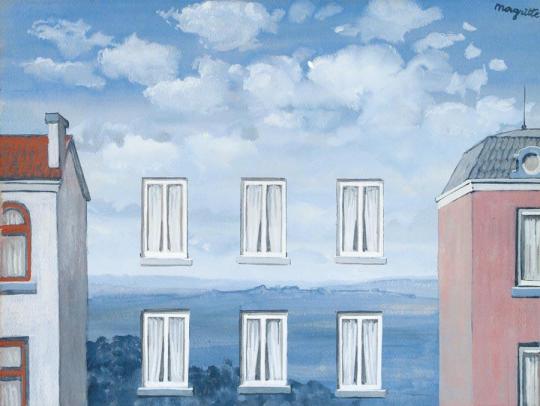
But maybe writing something here would be a better use of my time than laying on my side on the couch in this warm patch of sunlight and playing Final Fantasy VI on my OpenEmu emulator.
We'll see.
I was going to take an internet break because I just learned about a community in my city that appears to be intentionally self-contained. It's got a "Town Center" and sprawling lawns and enough driveways and garages for all the cars you'll ever need.
And your household will need at least two cars, since you have to take a highway to get in and out of it.
I spent some time on the website and frankly it depressed me. Not just the community itself, though I didn't get any joy from looking at the boring, cookie-cutter houses, sprawling unused front lawns, manufactured-looking meeting spaces, miles of paved street and sidewalk and more garages than I cared to count.
The thing that depressed me was that people actively choose to live there, and probably think they like it.
They think they like it because we grow up believing that the best thing we can achieve in life is buying piece of property with a cheaply-made structure out of particleboard and stucco. And why wouldn't we? Our capitalist society forces everyone into a race to the bottom, so good craftsmanship and design go out the window in efforts to pump out as many replicas of the same house each quarter while still maximizing profits.
Did I ever tell you about my parents house? The one we moved into when I was in the sixth grade after living on Murray Avenue since before I was born?
It was a dump compared to the house I rent now, but at the time I didn't know any better. I thought we were getting a shiny, new house and was too young to realize that the fact that my father was going to the site after-hours to double-check the workmanship so he could follow up with the builders was probably a large warning sign that it wasn't going to be a winning specimen. It certainly won't be standing a hundred or more so years like the house I'm sitting in today, I'm sure.
But anyway back to the house. At the time I loved the house. New room! New basement! New backyard! New neighbourhood! But as it turns out the neighbourhood wasn't what I expected it to be and in fact it turned out to be a profound disappointment in a way that I didn't realize until years later.
When I was small the house on Murray Avenue had a tiny backyard compared to the new house that backed onto an unpaved back lane, but beyond it stretched a few miles of undeveloped field that acted as an extension of my back yard, and in fact the street itself was surrounded by undeveloped fields if I remember correctly.
I spent god knows how many hours out there running around exploring the wild reeds in the spring when the field would flood and sometimes be too deep, and I'd soak my pants and socks and keep wandering around because there was no sense in putting dry clothes on just to go back out again, anyway.
In the wintertime the ploughs piled up snow at the end of the lane and we climbed over it and slid down it on toboggans and crazy carpets and sometimes old cardboard boxes if we were lazy.
There were parks nearby and a Tempo gas that I would walk to with my mom and brothers and the daycare kids so she could buy packs of Players Extra Light Regular and buy us pieces of hard Double Bubble gum if we didn't act up.
There was a community center and baseball diamond and hockey rink nearby at the end of the road, and an old wooden playground with a tire swing that I accidentally launched myself from more than once.
The houses had variety and were close together and nobody had garages in the front so you could see people and interact with them and get to know the names, birthdays, and personal details about everyone on your block, at least, but often several blocks over because everyone knew everyone's business. It takes a tremendous effort to be private when you live within a few feet of your neighbours' house and have to leave the house to get into your car every day.
And so we moved from this old street with its big fields and close-together houses with back lanes, and into a new stucco house with a garage in the front and a backyard that barely got used and nowhere to play unless it was a designated playground or recreational space. I liked it at first, and eventually it simply became the reality of where I lived, but I didn't like it as much as my old street and missed Murray Avenue.
One day not long after we'd moved into the new house my dad made a comment to me about the neighbours. He said that they'd gotten to know the people on Murray Avenue and was surprised that by moving into a "higher class neighbourhood" he wouldn't have "higher-class neighbours" who would be equally as friendly.
He had bought into the idea that buying a house in a new subdivision was the ultimate middle-class goal hook, line, and sinker, and couldn't figure out why he was unhappy with his new surroundings, which in hindsight was okay because at the time I didn't know why I was unhappy there, either.
It took a few political science courses and reading some Jane Jacobs to help me realize what was wrong, but I doubt my dad has figured it how and I doubt the people in that pre-planned community have, either.
At least that was the impression I got after I wound up on a couple of the Facebook Groups for the various neighbourhood associations there. So many people complaining about each other anonymously, shaming one another over how they parked their cars or how they don't mow their lawns often enough. Awful, petty stuff.
The saddest part of all of this is that eventually all the field surrounding my old house on Murray Avenue were filled in with the same cheaply-made cookie-cutter houses, street-facing garages, and wide car-centric streets as the neighbourhood my parents moved into.
More people chasing the middle-class "dream" without stopping to think about what it means.
Now I need an internet break.
